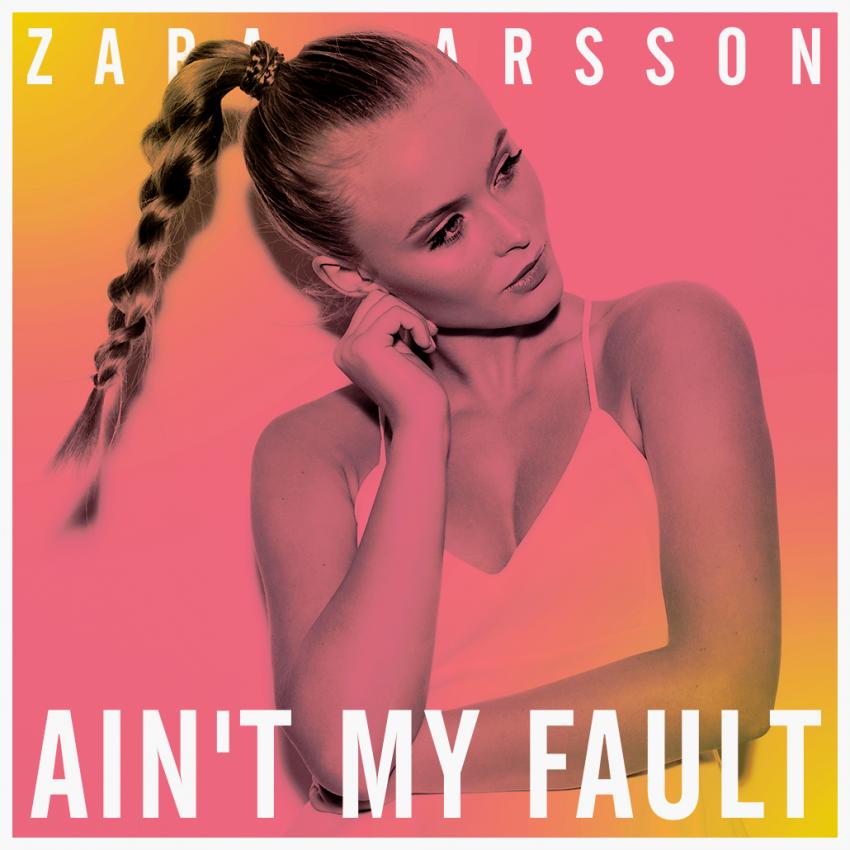In a world where blame often shifts like sand in an hourglass, the phrase "it ain't my fault" resonates with many. It encapsulates the essence of evading responsibility, yet it also sparks a deeper conversation about accountability and personal growth. As we navigate through life's challenges, this phrase can serve as both a shield and a mirror, reflecting our choices and the consequences that follow.
When we find ourselves in difficult situations, it's easy to point fingers and dismiss our role in the outcome. The expression "it ain't my fault" can become a convenient excuse, allowing us to sidestep the uncomfortable reality that we often play a part in our circumstances. But what happens when we refuse to take ownership? This article delves into the implications of this mindset and explores how embracing accountability can lead to a more fulfilling life.
Ultimately, understanding the nuances of "it ain't my fault" can pave the way for personal development and stronger relationships. By examining the origins and effects of this phrase, we can learn to shift from blame to responsibility, unlocking the potential for positive change in our lives. So, let's embark on this journey together and discover how acknowledging our role can empower us to shape our destiny.
Read also:Inspiring Life Of John Sylvester White A Remarkable Journey
What is the Origin of the Phrase "It Ain't My Fault"?
The phrase "it ain't my fault" has roots in various cultural contexts, often used colloquially to express a lack of responsibility. Its origins can be traced back to African American Vernacular English (AAVE), where it has been popularized in music, film, and everyday speech. This phrase reflects a sentiment that resonates with many individuals who feel marginalized or unfairly treated.
How Does "It Ain't My Fault" Affect Personal Relationships?
Using "it ain't my fault" as a defense mechanism can severely impact personal relationships. When individuals refuse to take accountability, it can lead to misunderstandings, resentment, and a breakdown of trust. Friends, family, and partners may feel disvalued or ignored, creating a cycle of blame that hinders communication.
Can Embracing Accountability Improve Our Lives?
Absolutely! By shifting our perspective from blame to accountability, we can cultivate healthier relationships and foster personal growth. Embracing responsibility encourages self-reflection and allows us to learn from our mistakes, ultimately leading to more fulfilling experiences.
Biography of a Celebrity: How "It Ain't My Fault" Plays into Their Story
One notable figure associated with the phrase "it ain't my fault" is the renowned pop artist, Lizzo. Known for her empowering lyrics and unapologetic attitude, Lizzo has become a symbol of self-confidence and resilience. Her journey is a testament to the power of owning one's narrative.
| Personal Details | Bio Data |
|---|---|
| Name | Lizzo |
| Birth Date | April 27, 1988 |
| Birth Place | Detroit, Michigan, USA |
| Occupation | Singer, Rapper, Flutist |
| Genres | Pop, Hip Hop, R&B |
| Years Active | 2010 - Present |
How Has Lizzo Used "It Ain't My Fault" in Her Music?
Lizzo's music often reflects the sentiment of "it ain't my fault," empowering her listeners to embrace their individuality and reject societal norms. Songs like "Truth Hurts" convey messages of self-acceptance and resilience, encouraging fans to take control of their narratives.
What Lessons Can We Learn from Lizzo's Journey?
Lizzo's journey teaches us the importance of self-acceptance and accountability. By owning her story and experiences, she challenges the notion that external factors dictate our lives. Her message resonates with many, reminding us that we have the power to shape our destinies, regardless of the challenges we face.
Read also:All About Bella Lotz A Rising Star In The Entertainment Industry
How Can We Shift from "It Ain't My Fault" to Ownership?
Shifting from a blame mindset to one of ownership requires intentional effort. Here are some practical steps to embrace accountability:
- Practice Self-Reflection: Take time to analyze situations where you may have contributed to the outcome. Ask yourself what you could have done differently.
- Communicate Openly: When conflicts arise, engage in honest conversations with others. Share your feelings and listen to their perspectives.
- Set Realistic Goals: Establish personal goals that focus on growth and improvement. Celebrate small victories along the way.
- Seek Support: Surround yourself with positive influences who encourage accountability and personal development.
Can "It Ain't My Fault" Ever Be Justified?
While it's essential to take ownership of our actions, there are instances where external factors do play a significant role in our circumstances. Recognizing when it's appropriate to assert "it ain't my fault" can help us understand the complexities of life. However, it's vital to strike a balance between acknowledging external influences and taking responsibility for our choices.
What Are the Long-Term Benefits of Accountability?
Embracing accountability offers numerous long-term benefits, including:
- Stronger Relationships: Fostering trust and understanding among friends and family.
- Increased Resilience: Developing the ability to bounce back from setbacks and learn from mistakes.
- Personal Growth: Gaining insights into one's behavior and making positive changes.
- Enhanced Problem-Solving Skills: Becoming more adept at navigating challenges and finding solutions.
Conclusion: Why It Ain't My Fault Shouldn't Be Our Default
In conclusion, while "it ain't my fault" may be an easy way out, it ultimately hinders our growth and relationships. By embracing accountability and shifting our mindset, we can unlock the potential for personal development and create more meaningful connections with others. So, the next time you find yourself tempted to deflect responsibility, remember: true empowerment comes from owning your story and learning from every experience.


